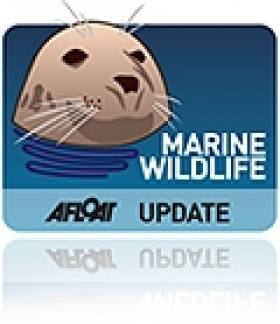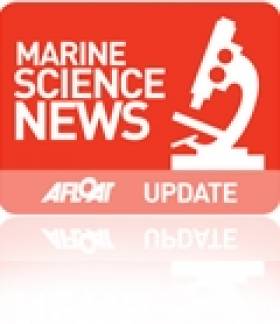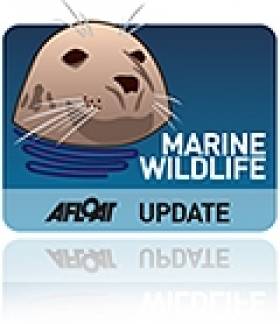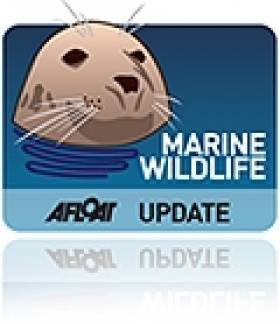Displaying items by tag: marine biology
Dead Whale Explodes, Marine Biologist Escapes Flying Entrails
#whale – A marine biologist who attempted to cut open a dead Sperm Whale beached in the Faeroe islands last Tuesday (November 26) narrowly escaped being dosed in entrails when the poor dead creature exploded.
A video clip, shown on Faroese Television, showed a washed-up dead sperm whale explode, spraying entrails. The dead whale had been lying on the beach for two days after it got stuck in waters between the Faroe Islands' two biggest islands. On Tuesday, marine biologist Bjarni Mikkelsen was dispatched to cut it open. As he did so, the whale exploded - the explosion being the result of methane gas accumulating during the dying process.
Laast October in Baltimore, West Cork a whale carcass cretaed a 'Rancid Oil Slick' in a conservation area off the south west coast of Ireland after it died in the Baltimore harbour and was towed offshore.
#MarineScience - An American university is teaming up with marine experts in Dingle to offer advanced marine biology classes.
As the Fairfield Sun reports, the biology department at Sacred Heart University in Connecticut is collaborating with scientists and staff at the Dingle Oceanworld Aquarium to offer the advanced classes to undergraduate and postgraduate students alike, beginning this May.
It's expected that the Coastal Study Centre programme will eventually provide both semester-long and short courses to take advantage of the aquarium's advanced research facilities, and will also accommodate students doing relevant thesis field work.
“Very few primarily undergraduate institutions have as strong a coastal focus as Sacred Heart does, which is only enhanced by our proximity to Long Island Sound,” said John Rapaglia, assistant professor of biology at Sacred Heart.
“Dingle Harbour’s semi-rural to rural location creates a nice juxtaposition to the highly urbanised Long Island Sound.”
Sacred Heart already has an established campus in the Kerry Gaeltacht town where students can take classes on Irish and Celtic history and heritage among other subjects.
The Fairfield Sun has more on the story HERE.
Work Begins to Eliminate Sea Squirts in North Wales
#MARINE WILDLIFE - Work on exterminating sea squirts at a marina in north Wales has begun.
The £250,000 (€301,000) project by the Countryside Council for Wales involves attaching giant bags to the subsurface structures around the marina in Holyhead, which is hoped will stop the clean flow of water to the sea squirts, causing them to suffocate and die.
Marine biologist Rohan Holt, who is managing the project, said: “If we successfully eradicate the sea squirt, we will work hard to make sure that it does not recolonise.
"This will mean careful monitoring in Holyhead marina and other marinas and popular mooring areas throughout Wales to check that it hasn’t reappeared."
The sea creature threatens shellfish by spreading like a blanket across the seabed and other surfaces.
As previously reported on Afloat.ie, colonies of the invasive Japanese sea squirt are posing a throat to mussel and scallop bed in the Menai Strait between Anglesey and the mainland.
Boats from Ireland have been blamed for carrying the invasive pest into Holyhead.
The Daily Post has more on the story HERE.
Time Running Out for Scotland's Resident Killer Whales
Time may be running out for Scotland's only resident pod of killer whales, the Scotsman reports.
The four males and five females have been studied at their home in the west of Scotland by the Hebridean Whale and Dolphin Trust and the Irish Whale and Dolphin Group for almost 20 years.
The marine mammals have been sighted at various times since 1981 by members of the public in Scotland, Wales and Ireland.
But since 1992 the group - known as the West Coast Community - has failed to produce a single surviving calf.
Marine biologist Dr Andy Foote said: "It's probably too late to save this group. I do believe that they will become extinct in our lifetime which is very regrettable since not many people even know that such a distinctive group of killer whales exist just off our coast."
Dr Foote believes possible contaminants in the waters off Scotland's west coast could be one reason why the pod is not successfully breeding.
The Scotsman has more on the story HERE.



























































